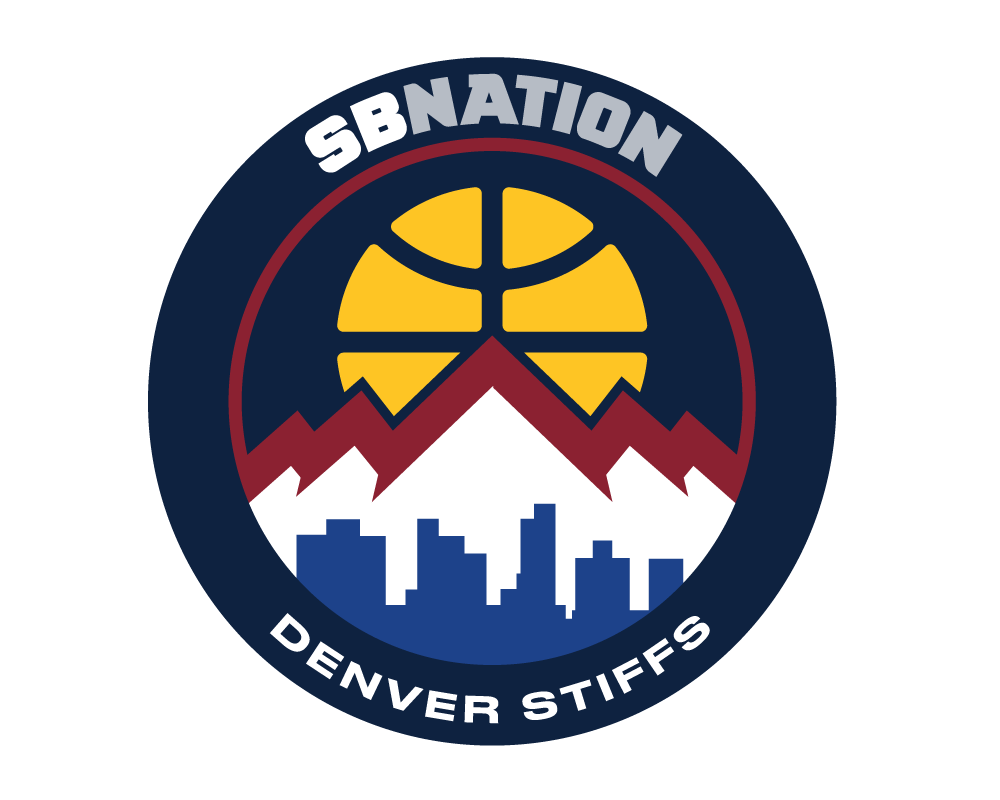I want to preface this with yeah, this blog post is long. But if you're interested in the NBA and why people think superstars are so important, I'm sure you'll learn something. Something special is happening with the Nuggets, and if you aren't paying attention you'll miss it.
The Sports Analytics conference happened 2 weekends ago and Mark Cuban roasted Bill Simmons by saying something to the effect of "Some people live life in the fast lane, the Sports Guy lives life in the past lane." Additionally, he mentioned that Facebook and Twitter are old news - I thought it was pretty smart insight, particularly if you're looking towards what everyone else is doing, you're probably missing out on doing something truly innovative or great.
Among some other things Mark Cuban mentioned were that he hopes the Dallas Mavericks suck and suck badly after Dirk retires. I thought this was pointed because too often, teams get stuck in a results oriented cycle of win as many games as possible, refuse to rebuild, and become mediocre for years. My beloved Denver Broncos are currently doing this - they couldn't stomach the rebuilding process so they hit the reset button, and have the chance to set the franchise back years.
Finally, I wanted to point out a team that's living in the fast lane and talk about my thoughts on the Denver Nuggets / New York Knicks trade. My buddy Matt and I have long said that Carmelo Anthony doesn't matter on the Nuggets team. We first started noticing this phenomenon when Carmelo would get injured and the team wouldn't skip a beat. Then we looked at the advanced stats and realized maybe Carmelo isn't as good of a player as we think he is, particularly on a team that's fairly deep to begin with. Anyways, I'm going to go out on a limb again and proclaim that the Nuggets will contend for a championship, this year, without Melo. I don't think anyone realizes how good this team is.
Here are the Nuggets' 4 factors analysis pre trade:
-
- eFG% offense|defense: 0.5238 | 0.5070
- TOV% offense|defense: 0.1318| 0.1218
- ORR offense| defense: 0.2315 | 0.7475
- FT/FG offense|defense: 0.2965 | 0.2285
And post trade:
-
- eFG% offense|defense: 0.5320 | 0.4771
- TOV% offense|defense: 0.1184 | 0.13631
- ORR offense| defense: 0.2727 | 0.81028
- FT/FG offense|defense: 0.2344 | 0.1895
That's great, Chan, what does this all mean you ask? Basically, our defense got WAY better, our offense got more efficient, we're rebounding an unheard of 81% of defensive rebounds (league average is like 76% from 74.75%), turning it over less, causing more turnovers on defense, getting to the line less and fouling less. The only category we got worse in is FT/FG. The only team that has a better eFG% differential is Boston. This Denver team is an ELITE basketball team. I know you're asking, but you gave up a superstar, how did that happen?
First, Carmelo Anthony isn't a true superstar - he's more like Joe Johnson than LeBron James. Second, Chauncey Billup's minutes are being replaced by a much more efficient Ty Lawson on offense, and Ty's defense, at this point in his career is much better than Chauncey's. Third, our offense has become what an NBA offense should be - layups and 3 pointers, with 2's thrown in only for game theoretical reasons.
Finally, what is the definition of a superstar? If you ask the media, it's someone who scores a lot of points, gets their points easily, and comes up big in the clutch. Conventional wisdom and history would suggest you need one of these guys to win a championship. If you think about the characteristics of a superstar, and why you need one, you come to some interesting conclusions. Here are the characteristics of a superstar as I would define them:
- Ability to use up a large volume of shots efficiently, or more efficently than most NBA players.
- The ability to at least defend at an above average level - Basketball is 1/2 defense and if you suck in half of the game, your team won't ever win championships.
- An elite skill in addition to scoring. This can be rebounding, finding open teammates, or defending.
To me, you can distill all the subjective traits of true superstar into those 3 traits. It's not enough to score in volume, the true superstars score efficiently (for those of you arguing Kobe, it was true in his prime, now the Lakers win because Gasol is scoring efficiently). It's not enough to only score, you must also out play your opponent on the defensive side. What other production is your position producing that the opponent's guy isn't? So, why do you need a superstar to win? Generally, the guys who the media considers superstars are the guys who score at an above level of efficiency while using up a lot of shots. For example, if your guy shoots at 50% and your opponent shoots at 45%, as an extreme example, if your guy took every shot and your opponent's guy took every shot, that would be a 10 point differential over the course of a 100 possession game (100 possessions * .5 * 2 points = 100, 100 possession * .45 * 2 = 90). The same goes for almost every single category in basketball, rebounding, defense, ability to get to the line. if your guys are slightly better than your opponent's guys, over the course of 100 possessions, you'll be the better team.
Someone has to take the shots on a team, since there are 100 possessions per game. An NBA team has to use these shots as efficiently as possible, and, in most cases, it's the best creator who can do that. Most NBA players' efficiency goes down with usage, including superstars. However, an average players' level of efficiency drops off more steeply than superstar's does. So on a bad team where no one can create a shot and everyone shoots .450, bringing in a Carmelo to use up 20 possessions per game at a .480 shooting percentage is a huge improvement. It also allows their role players to become more efficient as their usage levels drop.
So we've made the convincing argument that superstars are important in the NBA because they're more efficient than the average player, then why are the Nuggets so good after trading away Carmelo? It's because the Nuggets have been constructed in a way that I've almost never seen any other basketball team constructed except maybe the Pistons or Spurs. Every player is VERY efficient. In fact, each player is MORE EFFICIENT than Carmelo Anthony was, to the point that Carmelo Anthony shooting and stalling the offense was a detriment to the team. They don't need a superstar - because they're getting supestar production across the lineup. Even more unbelievable, is they've constructed the team, for the most part, of guys who only shoot good shots. None of the guys thinks they're a superstar, so they maintain high levels of efficiency because they don't go into hero isolation play mode. There are plenty of guys in the NBA who'd be efficient given a lower volume of shots, but they have too much pride to practice good shot selection and only take open shots or layups. Almost EVERY SINGLE NUGGET PRACTICES GOOD SHOT SELECTION! I'm pretty sure if Carmelo limited his shot selection to the best 10 shots a game, he'd shoot 8-10, put up 20 points a game on 55% shooting, but he thinks he's a superstar. In a league of egos, head cases, and selfish play, this is absolutely amazing.
The conclusion here is that you don't need a superstar - you just need to somehow maintain efficient production across possessions, which is usually embodied by a superstar. The hard part is identifying these players and who will be as effective with increased usage, who is only efficient because of shot selection and teammates, etc. That's why you have to have so much appreciation for the team Bearup, Wark, and Chapman put together pre-Knicks trade. Even smart teams get this wrong - I'm sure Houston would love the Trevor Ariza signing back. Some teams maintain efficiency by slowing down the pace and concentrating on each possession (Celtics). The unique thing about these Nuggets, is they maintain that level of efficiency while playing at a high pace. This point is really important because fast teams can always play slower, but slow teams, when forced to play faster, can't necessarily. The Nuggets are going to force teams like Boston, Chicago and Miami to play efficiently while under a faster pace than they're used to, and in the playoffs while at altitude. The football equivalent of this is a passing offense. If your team passes well, you get out to large leads, and you have the ability to dictate that the other team has to pass, something running teams aren't comfortable with. Running teams never can dictate a passing team's need to run.
You're probably wondering, who do they go to in the clutch? The beauty of it is they don't go to anyone - they run their offense and the defense has to defend all options. Which is a better outcome than the defense focusing on your one clutch player, who just happens to be able to score efficiently in those spots.
To top this off, DSMOK at APBR had a great post where he analyzed the trade from the Nuggets perspective. While the production of the players the Knicks got was higher this year, based on applying standard age improvement curves to the assets going forward and weighing the value of salaries, by next year the Nuggets will have done EVEN BETTER in the trade. The reason for this is how a standard NBA player improves. In general, players continue to improve until they hit age 26. At which point they start to slowly drop off until the age of 34. At 34 they start to decline steeply. Carmelo Anthony has peaked, Chauncey Billups is about to fall off that cliff while all of our young assets are projected to improve. Oh, did I mention we got 2 great young assets in Gallo and Chandler, a backup point guard who has been a starter in Felton, a couple role players who are better than advertised and provide big depth in Mozgov and Koufos, and ALSO several draft picks??



